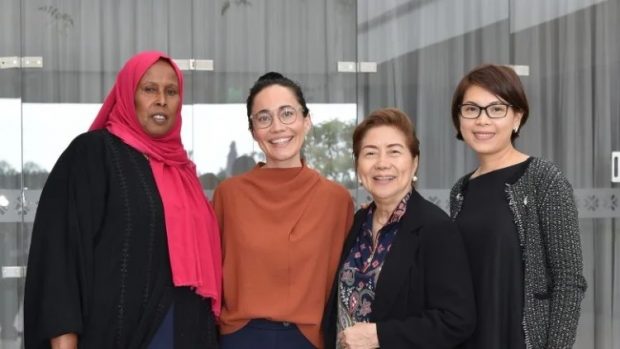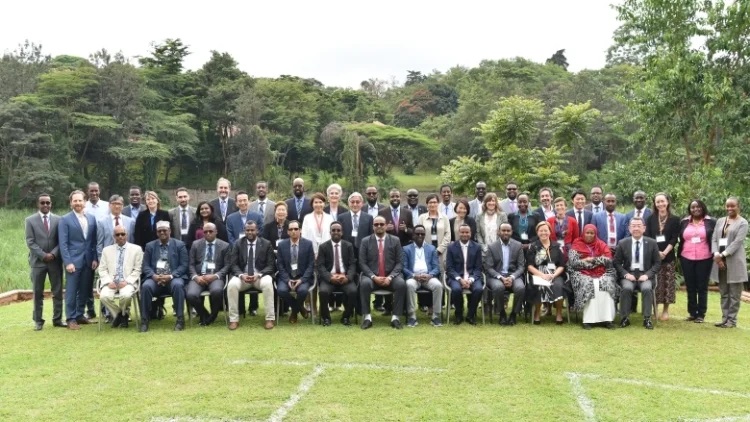
Somalia’s cities face a unique landscape of governance challenges. As they strive for better urban development outcomes, they must navigate complex political dynamics and conflict situations while managing limited fiscal resources for urban development. Additionally, frequent climate-related shocks and protracted conflict are triggering large-scale displacement to urban areas where internally displaced persons (IDPs) seek better access to humanitarian aid, urban services, and livelihood opportunities.
Earlier this year, Somalia was facing its worst drought in 40 years, drying up the soil and increasing the likelihood of flash flooding during rainy seasons. The Deyr rainy season, which began in October 2023, brought a flood event with a magnitude statistically likely only once in every 100 years. Today, the flood waters are now receding, leaving municipal governments to grapple with the aftermath – the floods affected 2.48 million people in Somalia according to the Somali Disaster Management Agency and displaced 899,000. It has been estimated that IDPs total approximately 3.8 million people in 2023. Displacement changes the demographics of cities and presents new challenges for providing urban services in the short term and integrating the needs of IDPs in future urban development planning.
The Nagaad Project— a Somali term meaning ‘prosperous settlement’—aims to strengthen public service delivery capacity of local governments and increase access to urban infrastructure in six Somalia cities: Mogadishu, Garowe, Baidoa, Kismayo, Beledweyne, and Dhusamareeb. Nagaad is supported by the World Bank’s Somalia Urban Resilience Project Phase II (SURP-II) and has a mission to strengthen municipal governance. Research shows that when cities are managed well, they can be engines of growth, providing citizens with urban infrastructure and services that enhance their well-being, resilience, and productivity. Conversely, cities that are poorly planned, managed, and governed are prone to poverty, inequality, and conflict.
Mayors participating in the Nagaad Project must be equipped with the tools to decide which projects to finance, considering a range of social, economic, environmental, and institutional factors. To support the mayors to formulate evidence-based and action-oriented governance solutions, the Nagaad Project and the World Bank Tokyo Development Learning Center (TDLC) organized a four-day Mayors’ Forum on Planning and Investment Programming in May 2023. Forty Somali participants and 13 international experts from 9 countries (Japan, the Philippines, West Bank and Gaza, Bangladesh, UK, US, and Italy) joined the forum to discuss municipal finance, pro-vulnerable community engagement, urban planning, investment programming, flood risk management, and governance.

The forum offered a platform for the mayors to exchange ideas and consult with international experts on technical aspects, such as prioritizing flood mitigation infrastructure, as well as on political and leadership aspects, such as developing a strategic city vision that guides urban investments. One notable expert was Ms. Mary Jane Ortega, former mayor of San Fernando, Philippines, who offered an inspiring account of how she rallied relevant stakeholders to establish a vision for San Fernando that defined priority investments over the short, medium, and long-term. This vision provided a clear narrative and direction for channeling the resources of local, national, and international stakeholders around common objectives.
Mr. Yasutomo Suzuki, former mayor of Hamamatsu City in Japan, stressed the importance of persistence in municipal fiscal reform. Another notable encounter was the meeting with the Governor of Nairobi, H.E. Sakaja Arthur Johnson, and his administrative team who talked about the social, economic, and environmental initiatives being advanced in Nairobi. This was an inspiring highlight from a fellow African city that energized participants about what can be achieved in Somali cities.
Our key takeaway from the Forum is that mayors don’t have to do development alone. There is an abundance of relevant expertise, tools, and frameworks available. However, while this rich knowledge is valuable, what matters is how it gets channeled into tangible solutions. The information available must be combined with a deep understanding of the challenges on the ground and a commitment to resolve them for the best social, economic, and environmental outcomes for all.
After the forum, the mayor of Baidoa took steps to strengthen early warning systems that alert inhabitants about impending flash flooding. This has proved to be a timely investment, which helped inhabitants evacuate during the recent floods; yet there is still much more that needs to be done to mitigate flood impacts and strengthen disaster preparedness to keep Baidoans safe when disasters inevitably happen.
In Mogadishu, the mayor began increasing the storage capacity of stormwater retention ponds in preparation for the rainy season after the forum, which has helped better stabilize the most flood-prone areas during recent heavy rains.
Better urban governance happens incrementally. The forum offered mayors an opportunity to reflect on their most pressing challenges and think proactively about the solutions to resolve them. If the mayors can continue to leverage disasters and resources from development partners as opportunities to build more urban resilience, then, with time, we hope to see better development outcomes as a result.
_________________________________________________________________
Xafiiska Wararka Qaranimo Online | Mogadishu, Somalia
_____________________________________________________________________________________Xafiiska Wararka Qaranimo Online | Mogadishu, Somalia
_____________________________________________________________________________________Advertisement
_____________________________________________________________________________________







